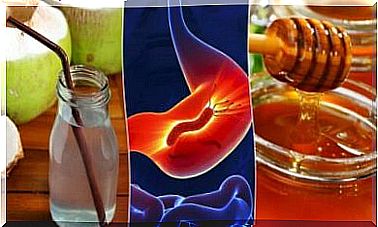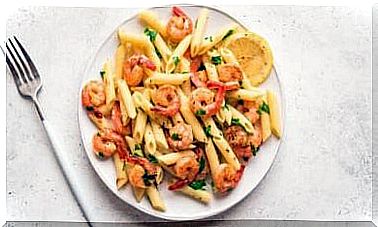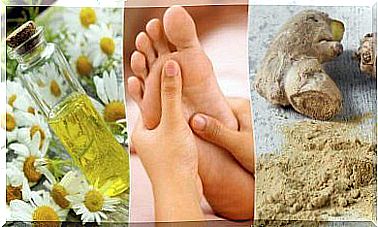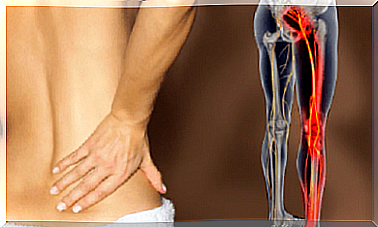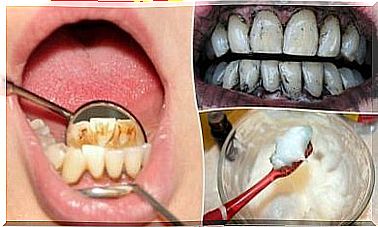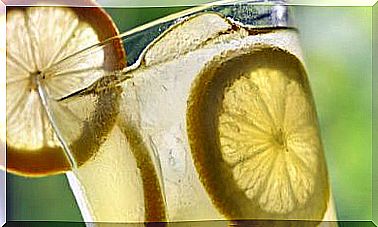Correct Nutrition In Case Of Hypothyroidism
Correct nutrition
plays an important role in hypothyroidism, i.e. problems with the thyroid gland. This is why it is important to know the foods that can help you with this. Here we introduce you to the 6 most important ones.
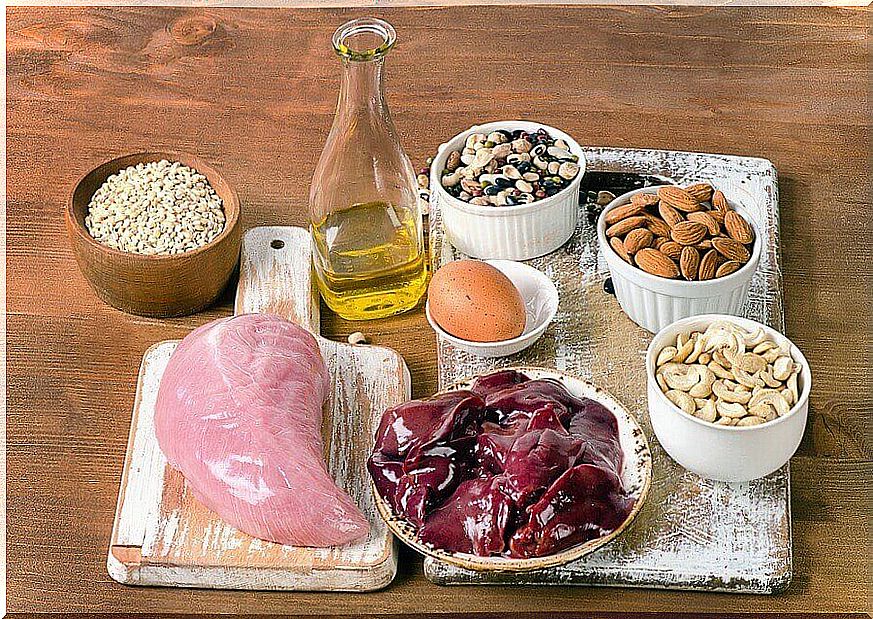
A diet plan tailored to hypothyroidism involves eating more of certain foods. Because these can counteract the consequences of the reduced production of thyroid hormones.
Of course, such a nutrition plan can vary depending on the patient. But in general, it is advisable not to go without some foods if you have thyroid problems.
Remember, hypothyroidism is a condition that can cause metabolic disorders, nutritional deficiencies, and heart problems. And at first there are no strong symptoms. Still, it’s better to keep them under control with the help of a healthy diet.
Many people suffer from thyroid problems. That is why we would like to introduce you to 6 recommended foods below. But first, let’s take a closer look at hypothyroidism. Because maybe not everyone knows exactly about it.
What is Hypothyroidism?

Hypothyroidism (or hypothyroidism) is usually an underactive thyroid. It is a thyroid disorder. The hormone production decreases. It often affects women over the age of 60. But it can also occur with anyone else.
Thyroid hormones have a significant influence on, for example, metabolism, circulation and heart health. Therefore, their decrease has a negative effect on well-being. In addition, one of the main consequences is obesity.
Causes of Hypothyroidism
The main causes of hypothyroidism are:
- Genetic factors or birth defects
- Iodine deficiency in the diet
- Radiation therapy for cancer
- Treatment with lithium or other drugs
- Sheehan’s Syndrome During Pregnancy
- Viral infections (e.g. cold)
- Autoimmune diseases
Symptoms of hypothyroidism
- Alarming weight gain
- Feeling extremely tired or over-sensitive
- Slow bowel movements (constipation)
- Increased sensitivity to cold
- Irregular menstrual periods
- Fixed expression, hoarse voice and slow speaking.
- Drooping eyelids or protruding eyes
- Dry and brittle hair
- Pale, flaky skin
- Brittle and weak nails
- High cholesterol
- Swollen limbs
- Muscle pain and stiffness
Recommended foods for a diet in hypothyroidism
Eating the right diet for hypothyroidism can positively support the effects of the treatments prescribed by your health care professional.
Of course, this is by no means a “miracle cure” for this disease. But a proper diet definitely helps to ensure a better supply of useful nutrients.
In the following we will look at the six most important of them.
1. High fiber foods
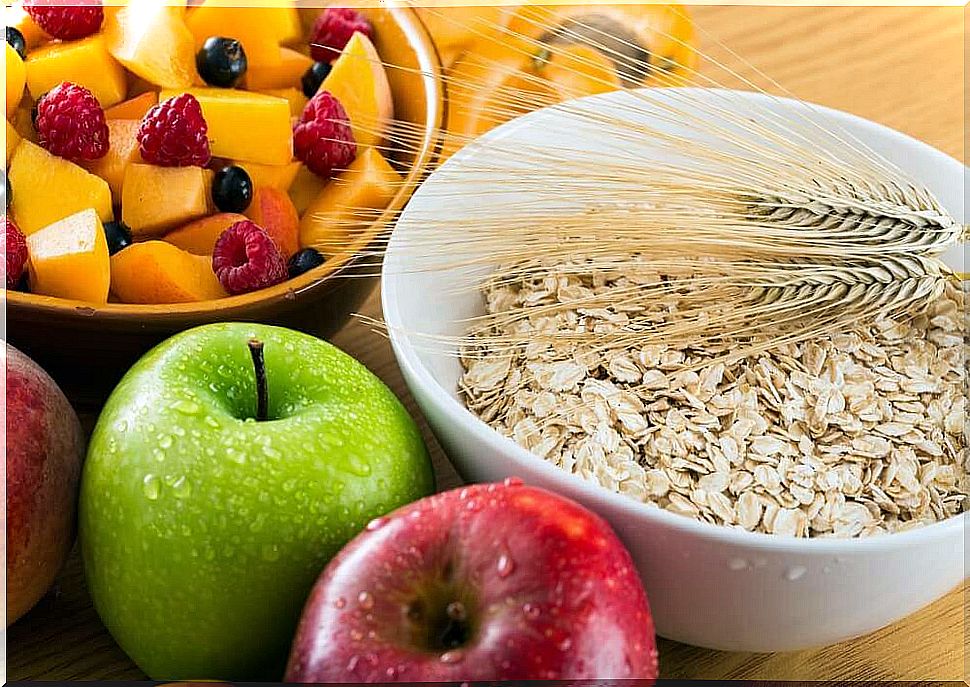
If you have thyroid problems, eating fiber is essential. Because these help to control body weight. They support digestion and also prolong the feeling of satiety.
In addition, they prevent high blood sugar levels. And they help against fatigue. Both symptoms are common in patients with hypothyroidism.
Foods that are particularly high in fiber include, for example:
- oats
- Whole grain rice
- legumes
- artichokes
- Mushrooms
- Fruits (with a low glycemic index)
2. Omega-3 fatty acids
Omega-3 fatty acids are particularly important in the diet for diseases of the thyroid gland. Because they have the ability to regulate cholesterol levels and fight inflammation.
Therefore , they are essential to mitigate the effects of a decrease in thyroid hormones. You can consume them naturally. For example in the form of:
- Oily fish (salmon, tuna, mackerel, sardines), as well as white fish
- Walnuts and pistachios
- Different types of seeds (linseed, chia, sunflower seeds)
3. Foods that are high in selenium
Foods containing selenium support the functions of the immune system. And they prevent disorders such as the so-called Hashimoto’s thyroiditis.
For this reason , consuming 200 mg of this nutrient favors hormonal balance. It also helps against other unpleasant consequences of an underactive thyroid.
The following foods contain selenium:
- Nuts and almonds
- Beans
- garlic
- asparagus
- tomatoes
- Grapes
- Melons
- Plums
4. Vitamins of the B group
A sufficient intake of vitamin B also improves the function of the thyroid gland. In addition, this also helps against fatigue.
Vitamin B 12 in particular has a preventive effect against anemia. And it helps keep your hair and nails healthy.
Vitamin B 9 supports the regulation of the hormone level. It also helps control anxiety. The following foods contain B group vitamins:
- Whole milk products
- Eggs
- Lean meat
- Fortified cereals
- Avocados
- legumes
- Wheat germ
5. Foods containing iodine
Iodine is an essential trace element. It plays an important role in thyroid health. For this reason, foods containing iodine are crucial in the diet for hypothyroidism.
Iodine is also combined with the amino acid tyrosine. Because that has a positive effect on hormone production.
The average adult needs around 150 µg of iodine per day. You can find the corresponding foods here:
- Sea salt enriched with iodine
- Different types of algae (kelp, wakame, arame)
- Green or white beans
- Organic strawberries
- seafood
- Dairy products
- Baked potatoes with their skin on
6. Foods that contain tyrosine
As mentioned in the previous section, tyrosine makes a good combination with iodine. Because this is how you can optimize the production of thyroid hormones.
In the case of diseases of the thyroid gland, it is therefore particularly important to supply the body with sufficient amounts. The following foods will help you:
- Sesame seeds
- oats
- fish
- avocado
- Almonds
- banana
Have you already included these foods in your hypothyroidism diet? If not, start now! Because they are not only healthy, but also very tasty!
Finally, it should be remembered that the foods mentioned are not a basis for your diet, but merely a supplement. Therefore, you should always follow the instructions of a nutritionist.
